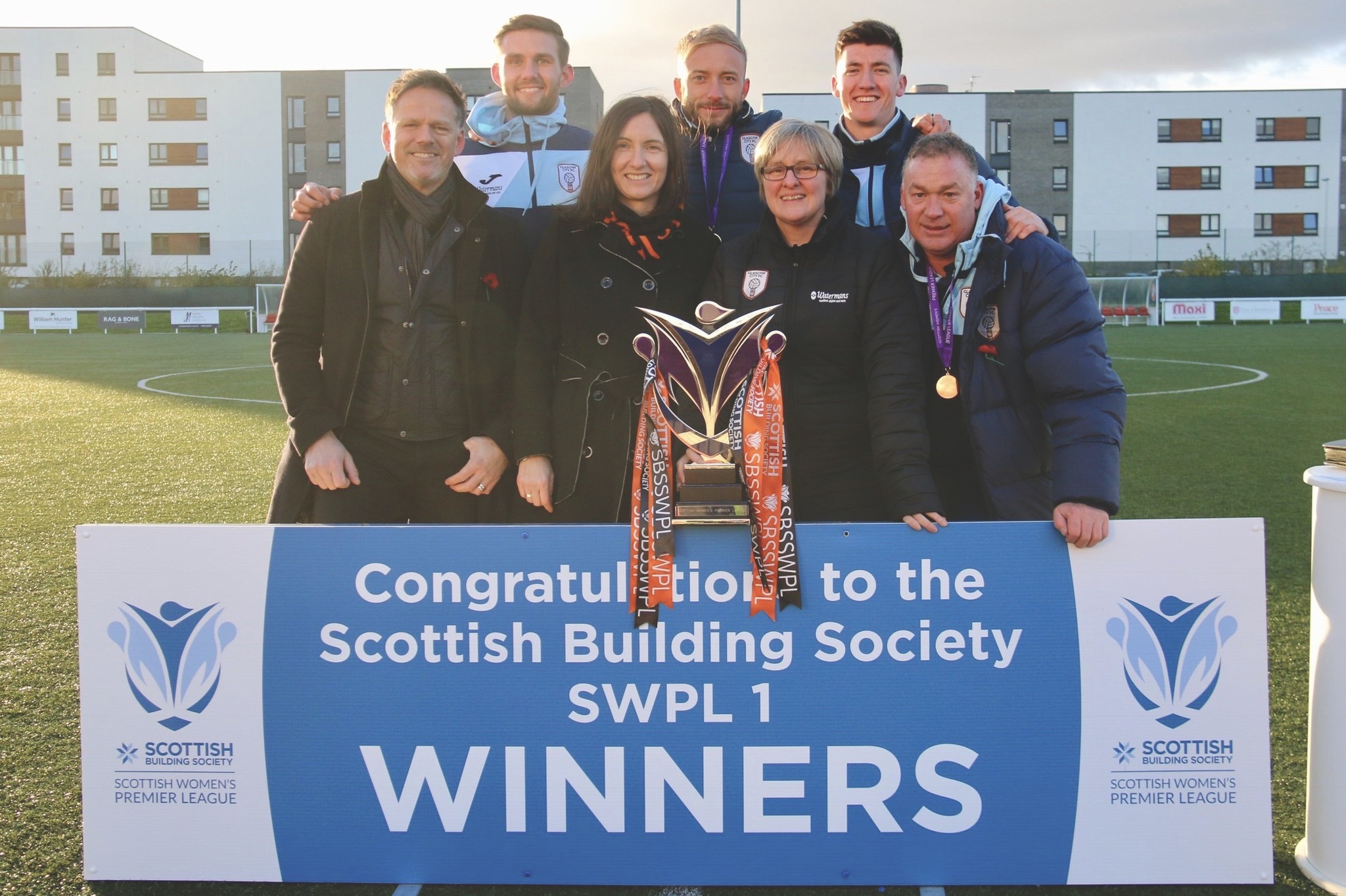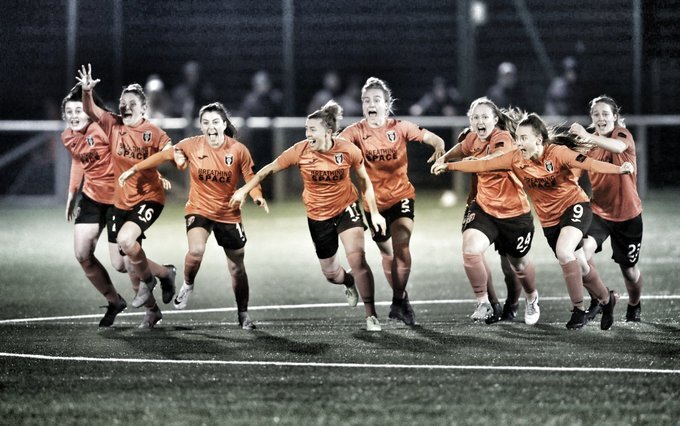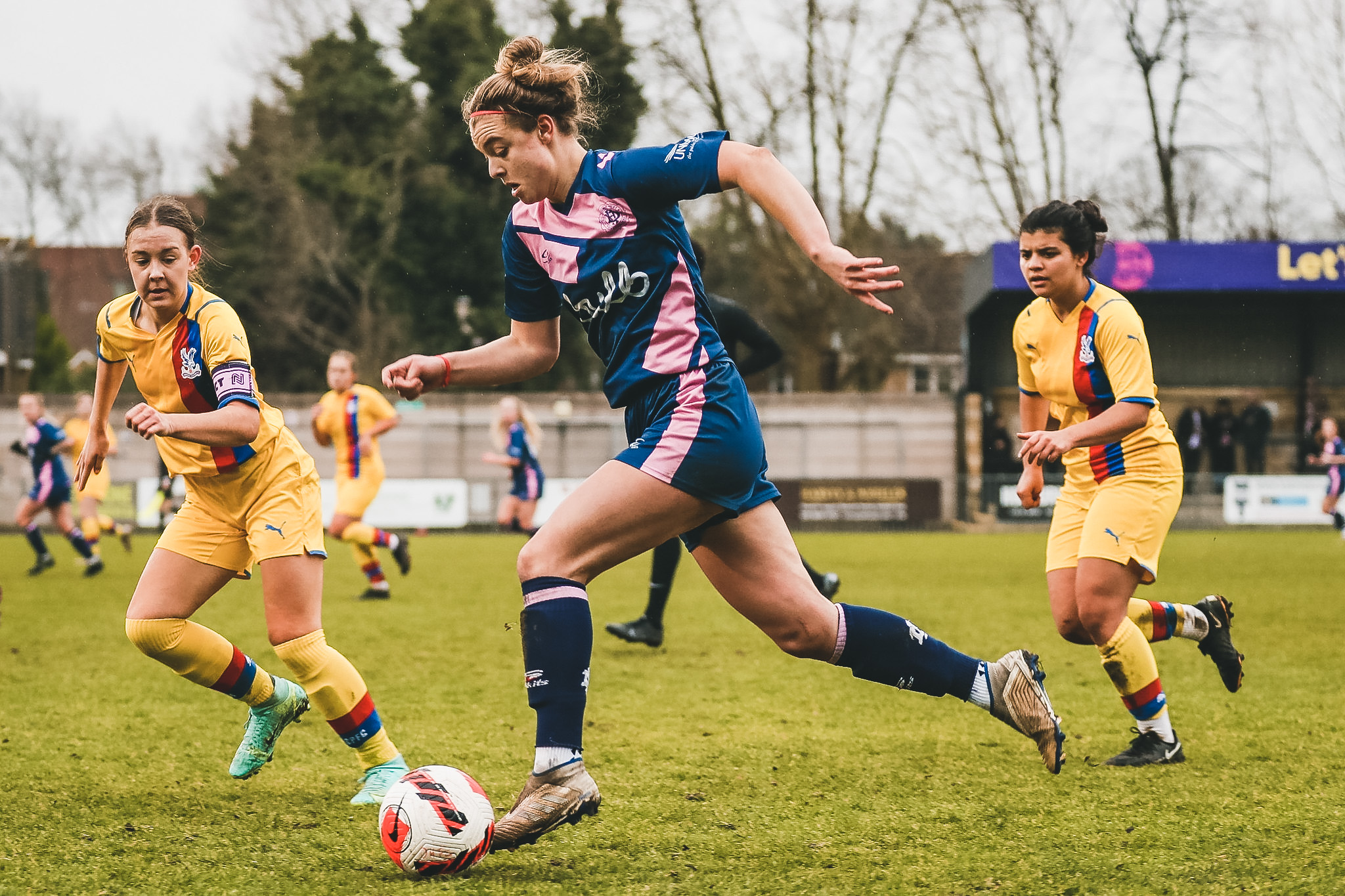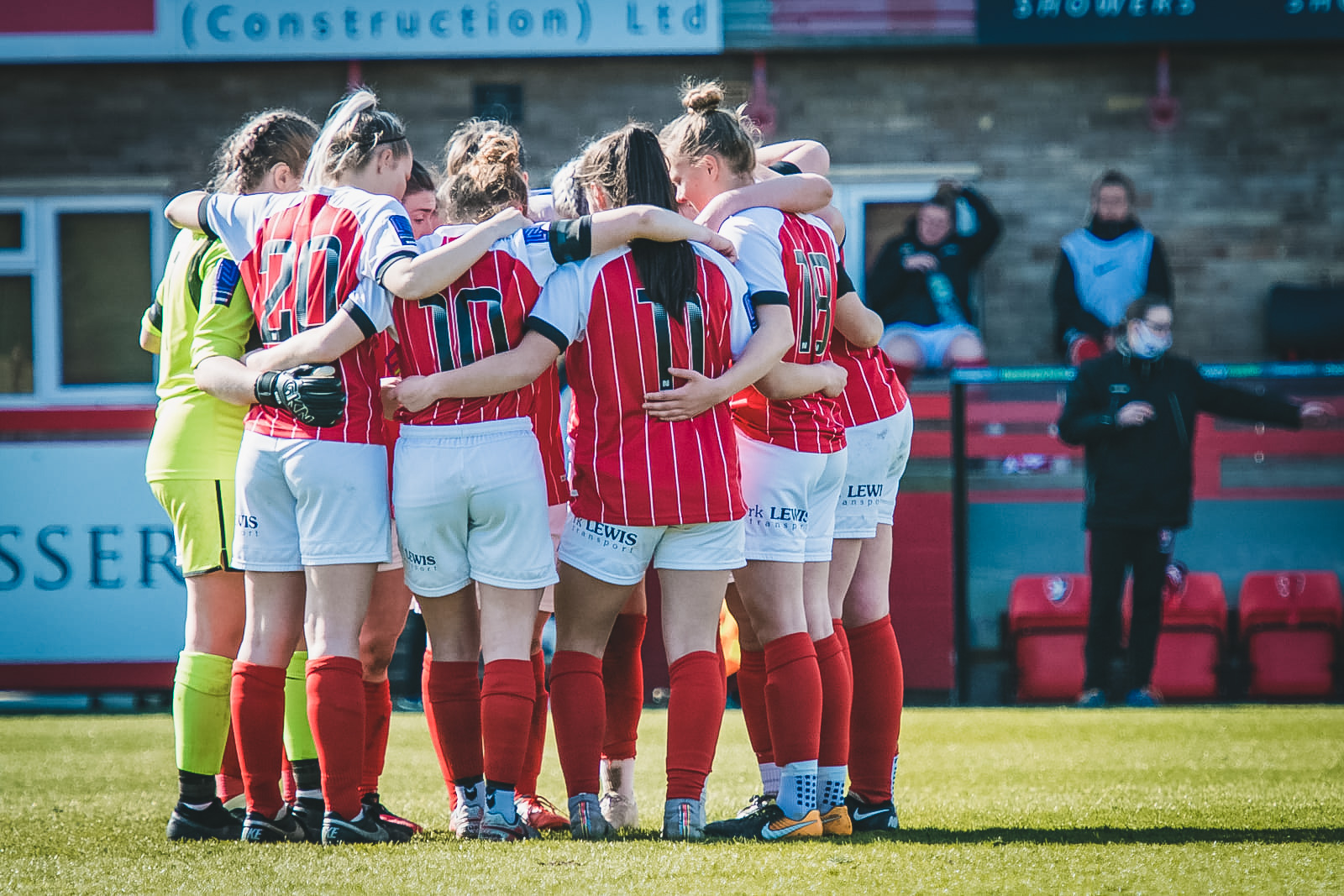Laura Montgomery co-founded Glasgow City in 1998 and they have become arguably the most successful women’s football in Britain. With the team just sealing a thirteenth consecutive Scottish title and beating Brøndby to secure a Quarter-Finals place in the UEFA Women’s Champions League, we are delighted that she agreed to talk exclusively to Impetus editor Ben Gilby in the middle of such an historic week for the club.
Glasgow City are a phenomenon in the world of women’s football and the fact that they continue to be so in this day of increased funding in their women’s sides from Scotland’s biggest men’s teams merely emphasises how outstanding their achievements are. Thirteen straight Scottish Women’s Premiership titles is something that not even the dominant Celtic or Rangers have ever won in the men’s game. Tonight, they host Brondby, three times semi-finalists in UEFA’s women’s club competitions (most recently in 2014/15), and hold a 2-0 lead from the first leg in Denmark. They stand on the brink of becoming the first Scottish side to ever reach the last eight in European women’s football’s premier competition. How can a standalone women’s team remain at the top of the tree?
For Montgomery, it’s because Glasgow City place huge emphasis on their passion for advancing “Girls and women and their role in society. That runs through everything we do. Players coming to us know that they won’t be coming to a club that suddenly lose funding simply because the men’s side are not doing well, or can’t train or play because a boys’ under twelve team need a pitch.” She points to a TEDx talk she gave in 2014 where she stated: “Quite simply, you can’t be what you can’t see without visible role models. How do girls grow up thinking they can be anything other than sexualised objects, which is how the media currently portray women?” The ‘you can’t be what you can’t see’ message was famously displayed on the back of Glasgow City’s away shirt in 2017 – a reference to the lack of coverage of women’s football within the Scottish media.
Whilst improvements in coverage during this summer’s Women’s World Cup, Montgomery is greatly frustrated by the fact that “the Scottish media has reverted to type since the World Cup. It’s all gone back to what it was before. I was interviewed on the radio recently and was asked what I thought about the attendance figures for the Women’s Scottish Cup semi-finals. My response was that I was not surprised at all – there was absolutely no publicity for the games in the media at all. We have a huge challenge of getting TV and newspaper interest.”
Glasgow City were formed in 1998 by Laura Montgomery and Carol Anne Stewart. “Carol played senior league women’s football having played at university. I wasn’t able to play football at primary school because I was a girl. I started a girls’ team when I was at high school, but we had very few other teams to play against. We only had about six games in all my time at high school. I played at university and was asked to come to Maryhill and play for them, as was Carol Anne. I tore my ACL, and so the two of us spent time talking about how we could do things better for women’s football. Better facilities, sponsors. We were fortunate at that time that the structure in women’s football in Scotland was changing – it was an opportune moment; now or never. At that time, there was a first division and a regional second division with only one team getting promoted. The structure then changed with more regional divisions at the second level. You could go straight into the second level. So, we formed Glasgow City, entered into the league and won that division in our very first year. The next year, our first in the Premier saw us finish fifth. We’ve never been lower than second since.”

The story is one that should inspire all girls that they can achieve anything they want with hard work. “It comes down to everyone involved at the club having high standards. Carol Anne and I are successful businesswomen and that mentality goes into Glasgow City. We pioneered so many things that are now common place in women’s football. We had the first full-time head coach, the first club to insist on our head coach holding a UEFA pro licence, the first to transfer a player for money. We were the first women’s club to use sports science. We want to train as often as a professional club – up to five times a week. We also played a major part in getting some television coverage for women’s football in Scotland. BBC Alba (the BBC’s Scots Gaelic language TV channel) followed us for a year in 2011 for a documentary, and on the back of its popularity, they got involved with covering women’s football.”
Glasgow City’s continued success comes despite the fact that Scotland’s biggest men’s sides Celtic, Rangers, Hibernian and Heart of Midlothian are investing more money than ever in their women’s teams. “Celtic pay their women players. They have done for a number of years. They are able to offer excellent facilities which they don’t have to pay for as it all comes from the main club. They can offer sports science and administrative support. The men’s club provide staff for marketing and sponsorship. Yet, we’re still achieving with just a fraction of the potential financial and human input that those sides have. We can offer a girls and women centred club, which they can’t.”
Related to this, Montgomery sees this season as possibly the finest in the club’s history. Every league match has been won, ninety four goals scored, with just seven conceded. On top of this is the European run. “It’s our best ever run. Reaching the last sixteen is punching above our weight. Winning 2-0 away from home in the last sixteen to Brondby, who have made the semi-finals before is magnificent. We have won away from home before, at Valur Reykjavik in the last thirty-two – but they don’t have the history that Brondby have and it’s a whole round further on.”
All this comes on the back of a positive showing internationally for the Scottish women’s squad. “We had a difficult group at the World Cup, with Japan and England”, Montgomery observes, “but we competed extraordinarily well. The Argentina game was one we hoped to win. We all know what happened in the end, but the experience will help the team to come of age. We fell just short, it’s a great learning curve for the team though. That squad will be together for the European Championships next year and also for the next World Cup, so it can only produce positives.”
To read the full interview click here.









